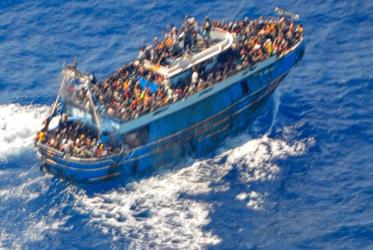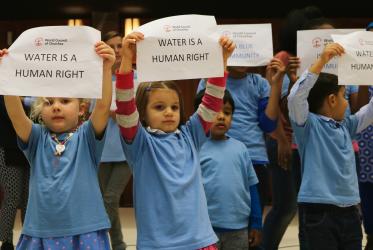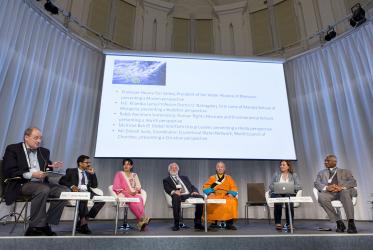Displaying 1 - 20 of 23
Ukraine: Responding to humanitarian need
08 September 2022
Churches should use their voice on climate change
26 February 2020
Plans for 11th WCC Assembly build excitement across the globe
18 February 2020
Fr Alexi - a peacemaker in Syria
21 December 2018
Ecumenical Patriarch visits WCC
24 April 2017
WCC Blue Community implements water changes in the Ecumenical Centre
16 February 2017
Tveit on the “Ten Commandments” of food
26 January 2016
Land rights focus of panel discussion
17 November 2015
“European solidarity must be strengthened”
29 October 2015
Local and global work saves lives
22 October 2015
The churches walk with refugees in Hungary
30 September 2015












